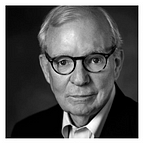Surviving Pertamina’s Hired Guns
I was transferred to Bank of America’s Jakarta branch in 1971. The Dutch branch manager and assistant managers ran the branch and thought young American officers were inexperienced. The Dutchmen retired and were replaced with skilled Americans.
The new manager, Ian Bradley, had spent years working throughout Asia: Manila, Bangkok, Saigon, Karachi and Calcutta. I got along with Ian and was promoted. My position was enjoyable; but Pertamina, Indonesia’s oil company, was as mystifying as Indonesia itself.
The bank closed on Saturdays at noon for Muslim services. Our golfing foursome sang Mad Dogs and Americans as we teed off. My first drive sliced and landed on the 18th fairway. I was jogging toward my ball when two men with Tommy guns stepped out from behind the trees. Their Tommy guns were cocked but not aimed at me. I raised my hands, “Banker at Bank of America.”
“Stay here,” the senior man said and ran toward a group of golfers starting on their 18th hole. The fellow returned and said, “Lieutenant General Sutowo, Pertamina boss, will see you.”
General Sutowo was on the patio as he ordered soft drinks for the Muslims and a gin and tonic for me. I introduced myself. Speaking English, Sutowo started about Pertamina’s future and its ability to borrow Dollars. Sutowo wondered why the Bank of America had not financed Pertamina. I answered with a complicated reply that was pointless. As General Sutowo was leaving, he shook hands and called me Mr. Bradley.
The following Monday morning, I had finished a memo about my meeting with General Sutowo. Ian read my memo.
I said, “I introduced myself as Stephen Jordan, but General Sutowo thought I was you. Sutowo went on about projects that require dollar financing. As you know, Pertamina’s financial statements in our files date back to 1957 when Indonesia nationalized Royal Dutch Shell’s assets. Pertamina hasn’t released financial statements since then. I’ve heard that large American banks have been financing Pertamina; the total amount is quite substantial.”
“Got that right,” Ian said. “I wonder what Sutowo has in mind.”
Months later, two young men from Pertamina came to the bank and demanded to see Mr. Bradley. Both men were swaggering army officers; I introduced myself.
The senior officer said, “You’re young and irrelevant; we must speak to Mr. Bradley.”
“He’s chairing a meeting.”
“We’ll wait.”
I left the room and interrupted Ian. I explained the situation, and he terminated his meeting. We entered the conference room to meet the Pertamina officers; introductions were brief. The officers asked when the bank will lend to Pertamina. Ian said, “Pertamina’s yearly financial statements are not available; so, we will not lend to Pertamina.”
The senior officer said that he knew where we lived. Then they stormed out.
After the door slammed, Ian said, “Ask Patty to join us.” Pattiacina (“Patty”) was the branch’s foreign exchange officer. Ian explained the Pertamina officers and their threat.
Patty said, “My favorite uncle is a general at Pertamina. He’ll stop that threat.”
The following day the two officers apologized to Ian and sent both of us flowers.
One Friday afternoon about a year later, Bill Smith, the Asian representative from one of the large Texas banks, visited our bank. Bill was a tall amiable Texan who dressed in Brooks Brothers suits. Late one busy afternoon Bill sat next to my desk and said, “I’m finished today, how about lunch?”
“I’m finished and famished. The French hotel contractors have brought cooks who opened a small dining spot Le Cantine near the construction site.”
After we ordered and started on the wine, Bill said, “The Pertamina finance men kept me waiting for three hours, as usual, even though we extended Pertamina $50 million. The receptionist opened a storage locker and hundreds of bank loan agreements tumbled out. I helped her and looked at about fifty American bank loan agreements. I doubt anyone at Pertamina read the loan agreements or their covenants. BofA hasn’t loaned them a dime?”
“Right,” I said.
Bill downed a glass of wine and said, “I’ll be joining my wife’s real estate business. I’m sick of banking and am getting out.” Bill ordered more wine, “I’ve heard there is an Australian lady, Sally, who’s a stringer for the large English-speaking newspapers.”
“Sally has been a stringer for years. She’s an excellent reporter, and, ah…”
Bill laughed, “I’ve heard that Sally has married several times and drinks British Navy Gin by the barrel. Ah, tomorrow I’ll tell Sally about you, your bank, and the tumbling loan agreements. I’ll note that Pertamina executives haven’t read the banks’ loan agreements. Okay with you?”
“Fine with me,” he said. “The check’s on me.”
“Thanks. I’ll pay for the French brandy that will bind our deal.”
The newspapers and radio news in Jakarta were censored, and Pertamina was seldom mentioned. I had a meeting with Sally; afterwards she notified newspapers around the world about Pertamina’s tumbling loans. I spoke to branches in Asia, North America and Europe to settle foreign exchange transactions; the news about Pertamina was much the same. About a month later, I was transferred to Singapore and followed Pertamina through English-speaking papers as Pertamina reconfigured the company’s management and cleansed the financial structure.
Several years later when I was in Dallas, I contacted Bill Smith who was working with his wife in the Dallas real estate market. I called Bill and got around to our Pertamina days. But Bill changed the conversation to the burgeoning Dallas real estate market. As our conversation was winding down, Bill said that we should get together when I was next in Dallas. I turned upbeat, but we both knew that would likely be our last conversation.
